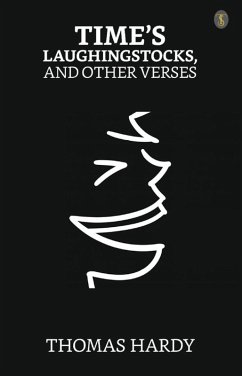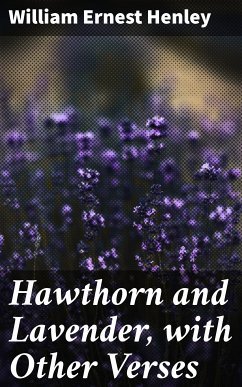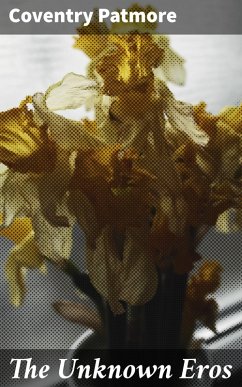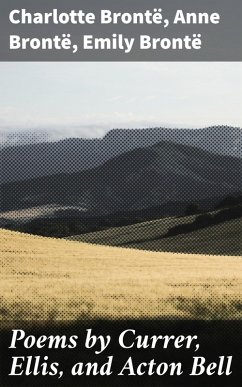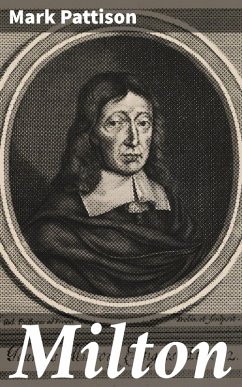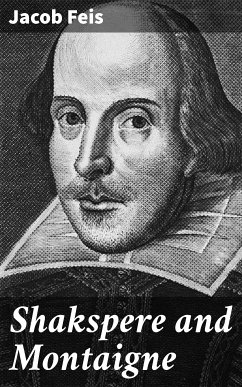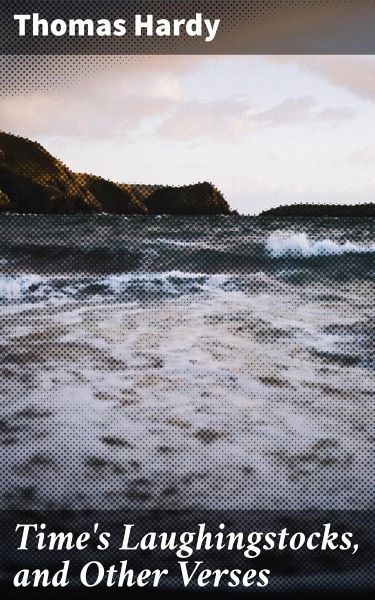
Time's Laughingstocks, and Other Verses (eBook, ePUB)
Enriched edition. Exploring Time, Love, and Nature: A Victorian Poetry Anthology
Kommentar: Whitfield, Cassidy / Redaktion: Good Press
Versandkostenfrei!
Sofort per Download lieferbar
0,49 €
inkl. MwSt.
Weitere Ausgaben:

PAYBACK Punkte
0 °P sammeln!
In "Time's Laughingstocks, and Other Verses," Thomas Hardy employs a poignant lyricism and a reflective style that delves into the complexities of human existence and the inexorable flow of time. This collection, rich with Hardy's characteristic themes of love, loss, and the inescapable passage of life, is rendered through a blend of traditional verse forms and innovative imagery. Set against the backdrop of a rapidly industrializing England, the poems resonate with a somber yet contemplative tone, challenging readers to confront the transient nature of experience while encapsulating the bitte...
In "Time's Laughingstocks, and Other Verses," Thomas Hardy employs a poignant lyricism and a reflective style that delves into the complexities of human existence and the inexorable flow of time. This collection, rich with Hardy's characteristic themes of love, loss, and the inescapable passage of life, is rendered through a blend of traditional verse forms and innovative imagery. Set against the backdrop of a rapidly industrializing England, the poems resonate with a somber yet contemplative tone, challenging readers to confront the transient nature of experience while encapsulating the bittersweet essence of nostalgia. Thomas Hardy, renowned for his novels and poetry, draws upon his own life experiences woven with a profound understanding of rural England and the shifting tides of society. His earlier works, such as "Tess of the d'Urbervilles" and "Jude the Obscure," showcase a deep empathy for humanity's struggles, which carries through into this collection of verses. Hardy's literary journey reflects his ambivalence toward modernity, and "Time's Laughingstocks" serves as a culmination of his preoccupation with fate and human folly. This remarkable collection is a must-read for those who appreciate the depth of emotion and philosophical inquiry in poetry. Hardy's insights into human resilience and vulnerability will resonate with anyone seeking to understand the enduring themes of existence. "Time's Laughingstocks" invites readers into a world where every verse echoes the laughter of time, urging contemplation while celebrating the beauty found within ephemeral moments. In this enriched edition, we have carefully created added value for your reading experience: - A comprehensive Introduction outlines these selected works' unifying features, themes, or stylistic evolutions. - The Author Biography highlights personal milestones and literary influences that shape the entire body of writing. - A Historical Context section situates the works in their broader era-social currents, cultural trends, and key events that underpin their creation. - A concise Synopsis (Selection) offers an accessible overview of the included texts, helping readers navigate plotlines and main ideas without revealing critical twists. - A unified Analysis examines recurring motifs and stylistic hallmarks across the collection, tying the stories together while spotlighting the different work's strengths. - Reflection questions inspire deeper contemplation of the author's overarching message, inviting readers to draw connections among different texts and relate them to modern contexts. - Lastly, our hand-picked Memorable Quotes distill pivotal lines and turning points, serving as touchstones for the collection's central themes.
Dieser Download kann aus rechtlichen Gründen nur mit Rechnungsadresse in A, B, BG, CY, CZ, D, DK, EW, E, FIN, F, GR, H, IRL, I, LT, L, LR, M, NL, PL, P, R, S, SLO, SK ausgeliefert werden.




